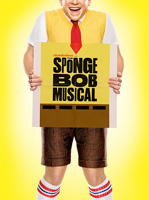
THEATER REVIEW | ‘IRVING BERLIN’S WHITE CHRISTMAS’
White Christmas
By Dennis Harvey
Published: November 16, 2004
Result is a shiny package most auds will be happy to unwrap - particularly on the road, in rep, and in those red states where an irony-free throwback will be most welcome. Given teh show’s seasonal appeal, and its resolute wholesomeness (it’s a surprise when one character says “hell”), longer-term residencies in teh usual theatrical capitals look less promising.
Directed by Michael Curtiz, the film slogged lackadaisically through 120 minutes of uninspired cliches. Let’s-put-on-a-show-to-save-pop’s-farm (a Vermont ski inn, actually) was the sole narrative impetus beyond the kind of tepid romantic “conflicts” that depend on a misundertanding but should have been cleared up in seconds.
Of course, all most people remember is bing Crosby singing the title songs. Vera Ellen and Rosemary Clooney doing "Sisters," and Crosby and Danny Kaye going girly for its reprise.
Stage translation sticks pretty close to the screenplay, including some of its dialogue. But David Ives and Paul Blake have added snappier lines while cutting the spoken text to a merciful bare minimum. Sans intermission, new entity runs about two hours - but the music-to-plot ratio is now closer to 70-30, a happy reversal.
After a 1944 prologue showing Pvts. Bob Wallace (Brian d’Arcy James) and Phil Davis (Jeffry Denman) entertaining their homesick 151st U.S. Army Division on a European-front Christmas Eve, we pick up the duo a decade later as they hit the big time.
Following a gig on “The Ed Sullivan Show,” they’re off for some R&R&R (the last being rehearsal) in Florida, first checking out "sister act" the Haynes Sisters.
The guys are impressed, but over drinks afterward, Bob and Betty (Anastasia Barzee) ruffle each others’ feathers. Meanwhile, Phil and Judy (Meredith Patterson) click, teh room fading away as they turn Fred & Ginger on “The Best Things Happen While Your Dancing.”
Phil tricks Bob into following the girls to Vermont instead of sunny Florida. Arriving, they get a shock: Inn where teh gals are booked is owned by their gruff but beloved former superior, Gen. Henry Waverly (Charles Dean). But he’s having a tough time, with unseasonable warm weather keeping biz away and mounting bills kept hidden by busybody concierge Martha (Susan Mansur).
Wallace and Davis not only contribute their talents to rescuing teh inn, but also summon the cast and crew of their next Broadway show for a tryout, even filling teh opening-night aud with 151st vets.
With its unapologetic peans to war heroes, military service as “the noblest profession” and all-around “decency,” this “White Christmas” is about as pro-moral values and anticamp cynicism as you can get. Yet it seldom becomes preachy or corny. Pacing by director Walter Bobbie (“Chicago”) is too brisk and the expansive retro-style dance numbers (choreographed by Randy Skinner) are too many and too pleasing to let a cringeworthy moment sneak in (aside perhaps from de rigueur spotlight granted 9-year-old Raquel Castro on reprised “Let Me Sing and I’m Happy,” a pander most viewers will duly coo over).
Highlights include “Snow,” reimagined as an elaborate “Your Hit Parade” -type group choral exercise; Bob’s white-tie-and-tails “Blue Skies” (staged much like Judy Garland’s “get Happy” in “Summer Stock”); and 1930s-style mass tap-a-thon “I Love a Piano” (the oldest song here, dating from 1915). Oddly, title song itself doesn’t appear until the end, introduced as an audience sing-along. Ecploiting its plaintie nature with a lower-key, first-act teaser wouldn’t be amiss.
The new writers haven’t succeeded in making the lead characters any less generic, or making what keeps them apart less trivial. James is propped up by his pleasant baritone, but Barzee seems a bit too contempo, and she finds no humor in Betty’s high-moral-ground prissiness. Allowed to be themore fun couple, Denman and Patterson run with it, with his dance moves a particular pleasure to watch.
Mansur holds up her end in teh Mary Wickes spinster role, though she deserves a funnier solo spot than “I’m Happy.” Expanded and/or new comic support includes two babbling bottle-blond chorines (Caitlin Carter and Mylinda Hull), a local yokel (Cliff Bemis) and, last/least by far, a screaming-queen stage manager (Kilty Reidy) presumably intended to rep diversity, but suggesting offensive retro caricature instead.
Anna Louizos’ handsome, fast changing set designs encompass as many locales as the film; Carrie Robbins’vintage fashions are charming.
The pit band under Rob Berman sounds bright and brash, playing the 1940s and ’50’s-redolent orchestratioins of Larry and Bruce Pomahac’s savvy vocal and dance arrangements.
